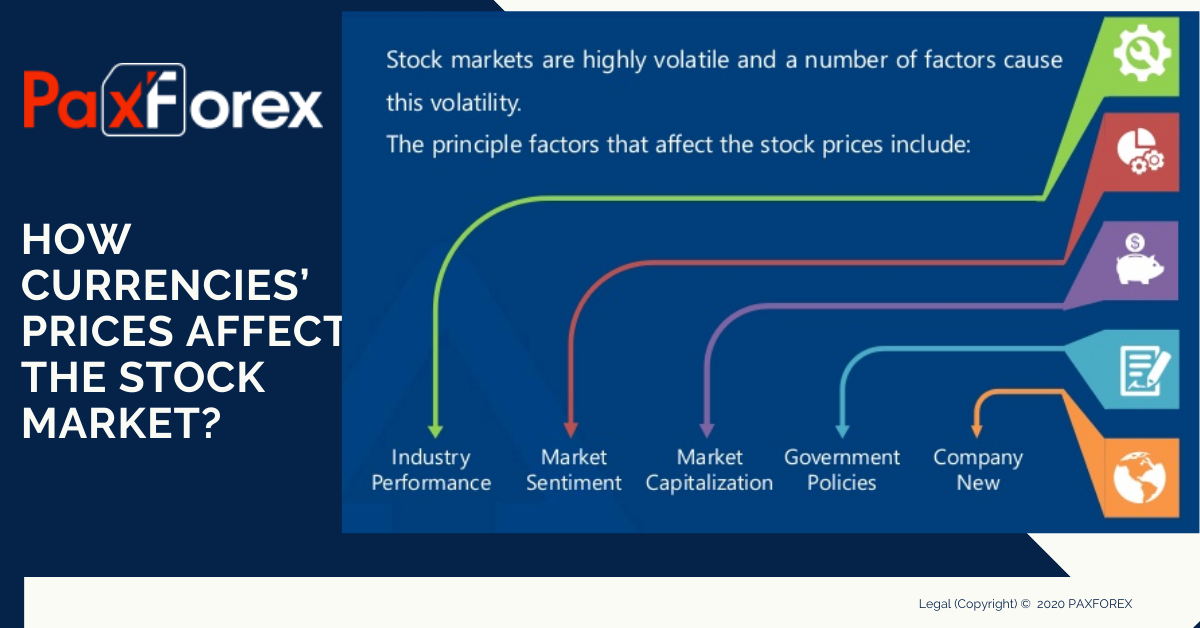
The currency market and stock market are playing a key role in international business all over the world. It is necessary to understand the relationship between both markets so that the investors may be able to invest in a better way by taking the minimum risk. One issue with using global equity markets to make forex trading decisions is figuring out which leads which. Many factors move the stock market, but the strength of a country’s currency can have a surprisingly large bearing. Rising currencies may serve to help share prices in one country and hinder them in another. It largely depends on where companies in a country make their money – home or abroad.
Foreign currency rates have a direct impact on the price and value of stocks in foreign countries, and changes in exchange rates will increase or decrease the cost of doing business in a country, which will affect the price of stocks of companies doing business abroad. While long-term movements in exchange rates are affected by fundamental market forces of supply and demand and purchase price parity, short-term movements are driven by news, events and futures trading and are difficult to predict. Domestic investors invest more in the domestic market when there is an increase in prices of assets which in turn increase the demand for local currency and also increase the behavior of selling foreign assets.
The increase in demand for local currency will force the interest rates to become higher which will ultimately attract the foreign investors to invest and gain maximum benefit. The exchange rate of the local currency will appreciate against foreign currency and will show a negative relationship. Traditional approach advocates that there is a positive relationship between the stock market and exchange market and the causality runs from exchange rate to the stock market. It suggests that a positive relationship between stock prices and exchange rates exists when local currency depreciates and local firms become more competitive which leads to an increase in their exports. This will result in an ultimate increase in stock prices.
When you own shares from other countries around the globe, the diversification benefits come mainly from your currency exposure. Investments made in the U.S. are denominated in dollars, but unless you are hedging out the currency risk, owning international stocks means you are also subject to fluctuations in local currencies when converting back into dollars. When the dollar is strong, U.S. stocks tend to outperform international equities. And when the dollar is weak, international stocks tend to outperform. This is all from the perspective of a U.S.-based investor, and the relationships would be reversed for a foreign investor in U.S. stocks.
As a currency trader, it is always good to look for correlations between other financial markets. These links can effectively indicate the price direction, which is useful when it comes to making trading decisions. As a trader, you need to remember that there is no such thing as a fixed correlation. Over time, economic circumstances can change which can alter existing correlations. Stock markets and currency markets tend to react in a fairly stable manner to something like interest rate adjustments at this moment in time. However, as economic events unfold nothing is stopping this change.







